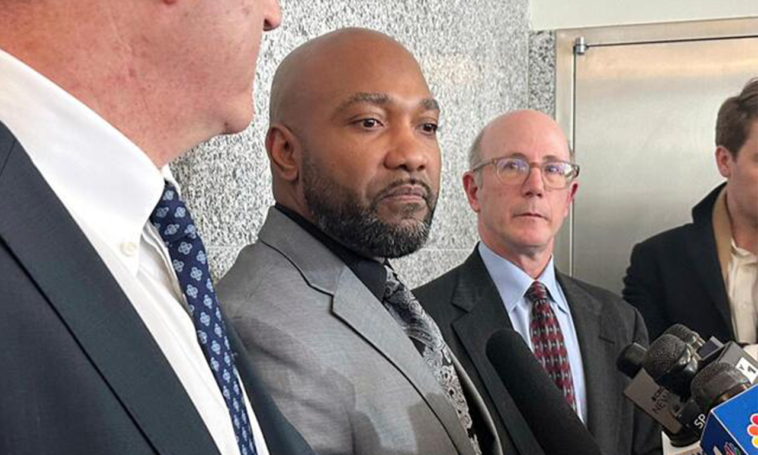Man cleared in 1996 Brooklyn killing said for decades he knew who did it. Steven Ruffin, who was imprisoned for 14 years for a 1996 Brooklyn shooting, was exonerated after prosecutors agreed with his innocence.
Ruffin was paroled in 2010 and has worked in sanitation in Georgia, but he still values his manslaughter conviction dismissal: “If you know you’re innocent, don’t give up on your case — keep on fighting, because justice will prevail.”
The case began in February 1996 when 16-year-old James Deligny was shot on a Brooklyn street over stolen earrings. Ruffin, a 17-year-old high school student, was the main suspect when the victim’s sister misidentified him in a lineup.
“I’ve wanted for 30 years: someone to listen and really hear what I’m saying and investigate what I was saying.” Steve Ruffin
Prosecutors now say Ruffin was innocent, pointing to the gunman Ruffin had named for decades. After reinvestigations over the last decade, Brooklyn prosecutors have overturned over three dozen convictions.
Due to time, Brooklyn District Attorney Eric Gonzalez, who wasn’t in office during Ruffin’s trial, said charging the newly suspected gunman is difficult. “We must have sufficient evidence to convict someone beyond a reasonable doubt,” Gonzalez said.
The botched police investigation and tunnel-visioned attempts failed to find the genuine criminal, according to prosecutors. Ruffin and others searched for a robber who stole his sister’s earrings. Deligny, the victim, was not the robber, displaying a fatal mistaken identity.
Ruffin’s case involves retired Detective Louis Scarcella, whose involvement in over a dozen disavowed cases has prompted suspicions about coercion and false identifications. In their Ruffin case report, prosecutors said they “did not discover any misconduct by Scarcella”.
Ruffin’s exoneration is a win, but it also highlights criminal justice system shortcomings like rigorous investigations, protocol, and unjust convictions. As Ruffin is released, it shows the ongoing fight for justice and the necessity to review earlier convictions.
The Brooklyn District Attorney’s acknowledgement of the first investigation’s flaws and the botched identification procedure illuminates systemic concerns that have hampered many cases. Ruffin’s unjust conviction is part of a troubling trend of reevaluating over three dozen Brooklyn cases in recent years.
Former Detective Louis Scarcella’s involvement in multiple discredited cases raises questions about that era’s practices. Ruffin’s prosecutors found no proof of Scarcella’s misconduct, but it emphasizes the need to reassess instances with potential improprieties to ensure justice and protect the innocent.
The reticence to charge the newly accused gunman shows the difficulties of reconsidering decades-old cases. Time makes it harder to get evidence and testimony, thus the legal system must balance justice with due process
Ruffin’s case sparks discussions about change and vigilance to prevent unjust convictions. As the criminal justice system struggles, transparency, accountability, and ethical investigative techniques are demanded.
In an age when forensic science and technology may illuminate ancient cases, critically reviewing convictions is crucial. Ruffin’s exoneration shows human resiliency and the value of justice advocacy.
Steven Ruffin’s exoneration was a turning point in his life, but it also shows that justice is a continuing process. The legal system hopes to learn from situations like Ruffin’s to create a more just and equitable future for people caught in the criminal justice system.





One Comment
Leave a ReplyOne Ping
Pingback:Brooklyn Deli Worker Executed Over $2 Cigar Leaves Neighbors Terrified - Hard Knock News
Join the Community and Be a Part of the Conversation
You must be logged in or registered to post a comment.